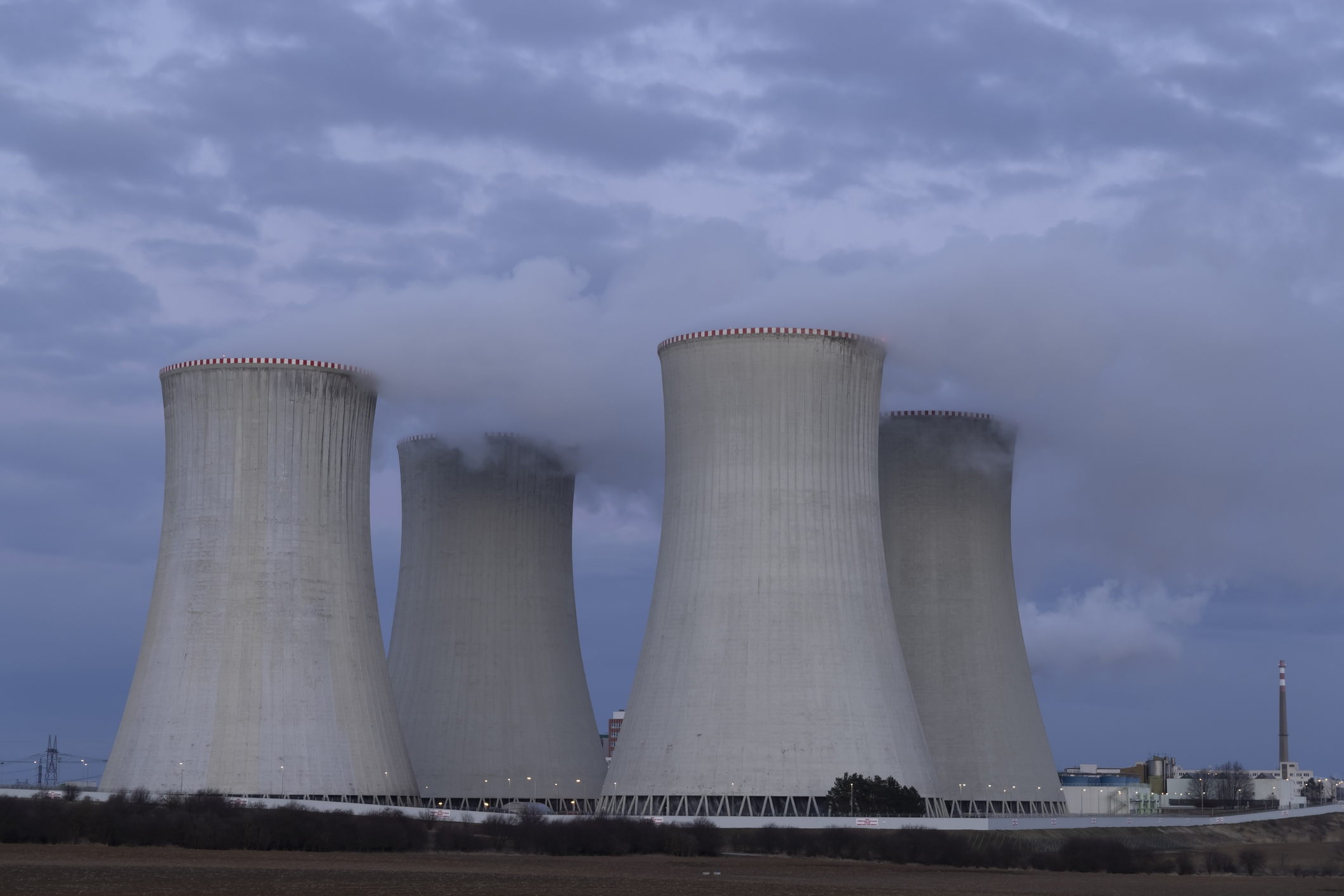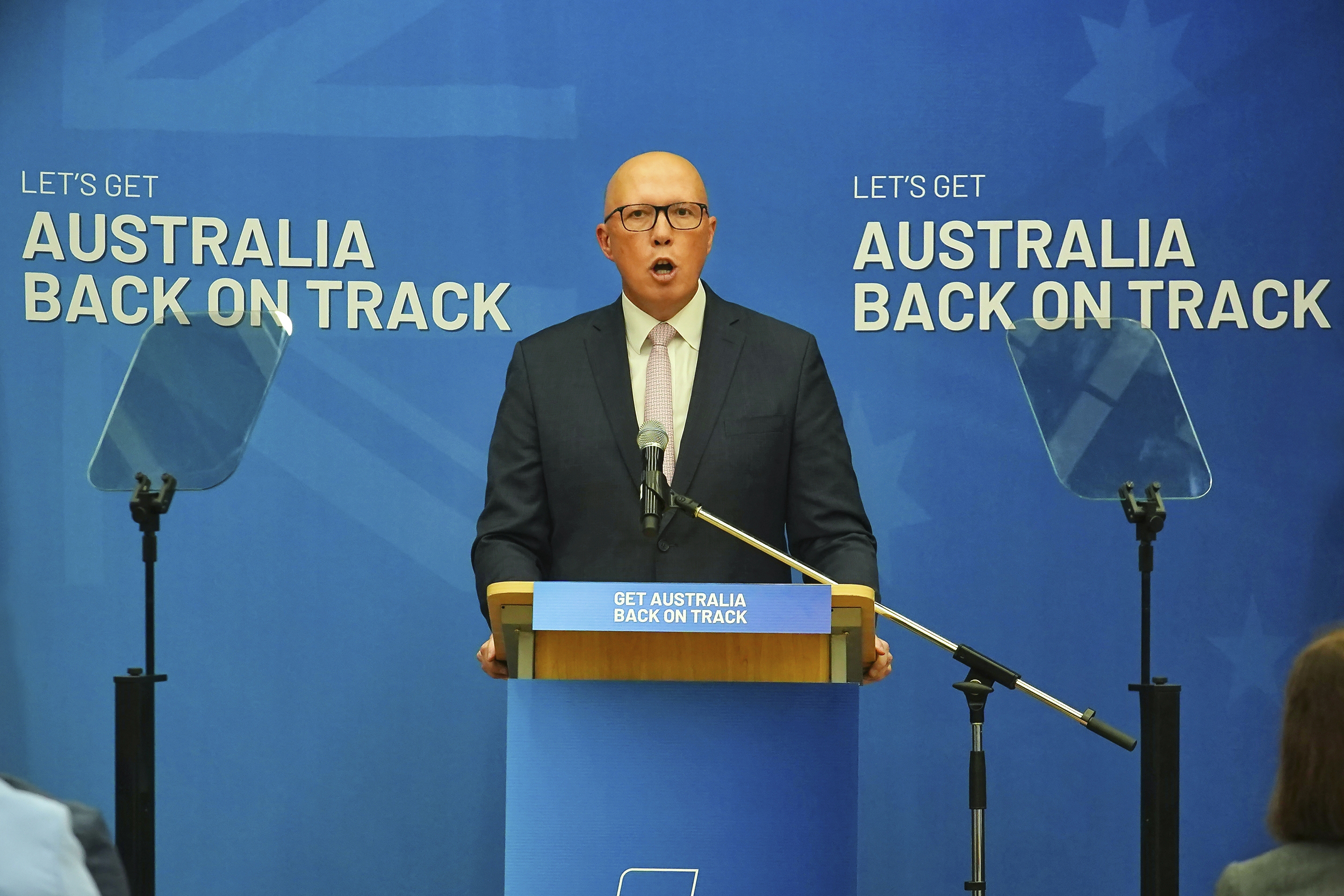Nuclear power is shaping up to be a hot button issue in the 2025 federal election, with Opposition Leader Peter Dutton and the Coalition pushing a plan to build seven nuclear reactors across Australia if elected.
Such reactors are currently banned at a federal level, meaning the Coalition would have overturn federal and even some state laws to build their proposed reactors.
Here's everything you need to know about the nuclear power bans in Australia.
READ MORE: Sam Kerr denies using 'white' was an insult as new footage emerges

Why is nuclear power banned in Australia?
Nuclear power as an energy source has been banned in Australia since the late 1990s, when Prime Minister John Howard's Coalition government passed two laws prohibiting it.
First came an amendment to the National Radiation and Nuclear Safety Act (1998) which banned the development of any new nuclear power sites in Australia.
The following year, the Commonwealth Environment Protection and Biodiversity Conservation Act (1999) introduced new rules prohibiting the construction or operation of any facilities that generated nuclear power, fabricated nuclear fuel, enriched uranium or processed nuclear waste.
At the time these laws were passed, there was only one site in Luca Heights, south of Sydney. It remains the site of Australia's only nuclear reactor, which is used for medical and industrial research.
Some state governments have also introduced additional nuclear prohibitions.
Which countries have banned nuclear power?
Countries that have banned the construction of new nuclear power plants like Australia include Austria, Denmark, Greece, Italy, Ireland, Norway and Serbia.
Several other nations have also announced plans to phase-out nuclear power, including Belguim, Germany, the Phillipines and Switzerland.
READ MORE: Dad scoops $60m on lottery after 'dreaming' about his numbers
Why is Australia anti-nuclear?
There was a dramatic shift in public opinion on nuclear power after the catastrophic Chernobyl disaster in 1986.
That shift likely contributed to the introduction of anti-nuclear laws in Australia in 1998 and 1999, which have remained in place ever since.
Modern Australian attitudes towards nuclear power are mixed but the majority of anti-nuclear sentiment centres around the financial and environmental costs.
It would cost billions to establish a nuclear power network in Australia and though nuclear power is considered "clean" (it doesn't produce carbon emissions), it is not renewable.
READ MORE: Trump blames 'obsolete' system for Washington air disaster
Is it illegal to build a nuclear reactor in Australia?
Yes. The National Radiation and Nuclear Safety Act (1998) and Commonwealth Environment Protection and Biodiversity Conservation Act (1999), as well as some additional state legislations, prohibit the construction or operation of nuclear reactors.
Is there support for nuclear power in Australia?
Some. The Coalition is leading support for a nuclear future for Australia with its nuclear power proposal, which would see seven nuclear reactors built across the country.
Nuclear for Australia, the country's largest nuclear power advocacy organisation, has voiced support for the plan.

What is Peter Dutton proposing?
Opposition Leader Peter Dutton and the Coalition are proposing overturning existing laws banning nuclear power in Australia in order to build seven new nuclear plants.
"This will make electricity reliable, it will make it more consistent, cheaper, for Australians and it will help us decarbonise as a trading economy as we must," Dutton said.
"The fact is we can deliver a plan which is going to keep the lights on and we have a plan and a vision for our country which will help grow businesses, not close them down."
The Coalition has claimed the plan is 44 per cent cheaper than the government's renewable energy plan and would lower Australians' electricity bills.
However, the Coalition's figures are based on a scenario that produces about 45 per cent less energy by 2050 than renewables.
READ MORE: Kyle Sandilands reveals doctors have found a second aneurysm
What does nuclear power cost?
Modelling from the Coalition suggests its nuclear policy would cost Australia more than $300 billion, significantly less than the government's renewables plan.
But the CSIRO's draft GenCost 2024-25 report projected that building nuclear reactors would actually cost at least twice as much as renewable power in Australia.
By 2040, it predicted nuclear-generated electricity would cost about $145-$238 per MWh by 20204, compared to $22-$53 per MWh for solar, and $45-$78 per MWh for wind.
What does nuclear power mean for the climate/environment?
Nuclear power doesn't produce greenhouse gasses, however it's not renewable as the process of fission (which generates nuclear energy) requires fuel, typically uranium.
Though Australia has one of the world's largest uranium reserves, it is a finite resource and therefore isn't renewable.
Nuclear waste also poses an environmental threat, especially in the case of a disaster like the Chernobyl or Fukushima incidents.
DOWNLOAD THE 9NEWS APP: Stay across all the latest in breaking news, sport, politics and the weather via our news app and get notifications sent straight to your smartphone. Available on the Apple App Store and Google Play.
